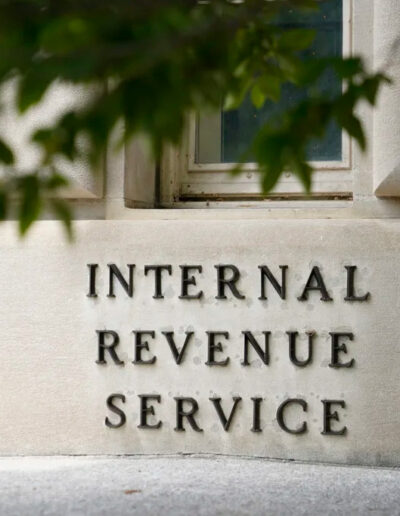
The Internal Revenue Service (IRS) is poised to collect hundreds of billions of dollars of additional tax revenue by going after the overdue and unpaid taxes of the ultra-wealthy, thanks to funding from President Biden’s Inflation Reduction Act (IRA).
New estimates released this week by the Treasury Department and the IRS indicate that tax revenues are expected to rise by as much as $561 billion from 2024 to 2034 due to increased enforcement made possible by IRA funding.
The analysis also found that additional revenues could reach as much as $851 billion if IRA funding is renewed once it runs out, as the Biden administration has proposed.
Using an infusion of funds provided by the 2022 law, the IRS has already collected more than $520 million from 1,600 millionaires who had unpaid tax bills of more than $250,000.
Both the Treasury and the IRS have stated that they’re focusing their efforts on tracking down wealthy individuals and businesses with unpaid or overdue tax bills and not on families earning under $400,000 per year.
Making the nation’s tax system more fair has been a priority of President Biden’s. Biden has also proposed a billionaire tax and pledged not to raise taxes on families earning under $400,000 per year.
“I just want everybody to pay their fair share,” Biden said at a campaign event in November. “Donald Trump and the MAGA Republicans are determined to protect the tax cuts that are ridiculously low for the corporations, as well as billionaires who are paying less — and millionaires who are paying less than school teachers in a percent of wages that they pay.”
The report’s release comes as Republican lawmakers try to cut IRS funding and just weeks after news emerged of a tax loophole that allowed the richest Americans to sit on $8.5 trillion in untaxed profits in 2022.
Despite the clear payoff on investment, during last year’s negotiations over the nation’s debt ceiling, House Republicans negotiated about $20 billion in cuts out of the original $80 billion provided to the IRS under the Inflation Reduction Act.
“Congressional Republicans’ efforts to cut IRS funding show that they prioritize letting the wealthiest Americans and big corporations evade their taxes over cutting the deficit,” National Economic Adviser Lael Brainard said in a statement.
The infusion of funding from the IRA came at a crucial time for the agency.
The Treasury’s Deputy Assistant Secretary for Tax Analysis, Greg Leiserson, told reporters this week that the audit rate of millionaires and large corporations fell by more than 70% and 50% respectively from 2010 to 2019, a decade in which the agency experienced significant budget cuts at the hands of Republicans in Congress.
Ensuring that people actually pay their taxes is one of the IRS’ biggest challenges; according to the agency, the tax gap–the difference between taxes owed and taxes paid–has grown to more than $600 billion annually.




















